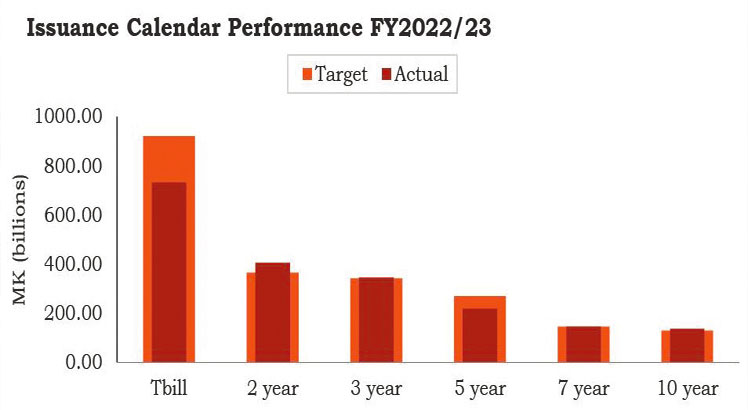Debt strategy under threat
Treasury’s decision to restructure short-term debt to long-term could be under threat as the unstable macroeconomic environment is pushing investors to invest in short-term instruments, Business News has established.
This follows government’s deliberate strategy to lengthen the maturity profile of domestic debt, resulting in the shift of domestic debt holdings from Treasury bills (T-bills) towards Treasury notes (T-notes).
Presently, T-notes dominate the domestic debt portfolio at 86 percent. In an interview on Monday, market analyst Armstrong Kamphoni observed that in an unstable macroeconomic environment, investors tend to shy away from medium to long-term fixed income investments, especially if interest rates are trending upwards.
Kamphoni said government’s decision to restructure short-term debt to long-term is not achievable, as such, conversion tends to delay interest payments and offer a breather as other measures are being pursued.

He said this could result in increased debt-to-gross domestic product (GDP) ratio as interest compounds on the short dated securities and resultantly, worsen the cost of borrowing.
Said Kamphoni: “The market has been cooling off with most stocks either stagnating or gradually sliding. We think the increasing interest rates might be partly contributing as investors keep funds in the money markets.
“On the other hand, the market is also overpriced and will have to correct at one point or will remain stagnant until earnings catch up.”
Market analyst Cosmas Chigwe said in an interview yesterday that until there are some signs of stabiity, investors will continue to prefer short-term securities.
He said: “The shift towards longer-term instruments serves to enhance resilience to extenal shocks.
“Unfortunately, in the uncertain economic climate, investors usually exhibit a preference for short-terms assets due to heightened risk aversion and a desire for liqudity.”
Treasury data shows that as at end-December 2023, total domestic debt amounted to K6.08 trillion, a 13 percent rise from the K5.36 trillion registered as at end-March 2023.
During the 2022/23 financial year, for instance, Treasury securities performance was below the target with 91.32 percent of the total target being raised due to liquidity challenges faced by market players.
On the other hand, while T-bills mature in a year or less, T-notes have maturities of two to 10 years.
T-notes, though long-term in nature, are expensive instruments on the market compared to short-term T-bills, a move experts warn could see investors paying high interest payments for the instruments.
However, Treasury believes issuances of longer-dated domestic debt instruments will help moderate the cost of borrowing





